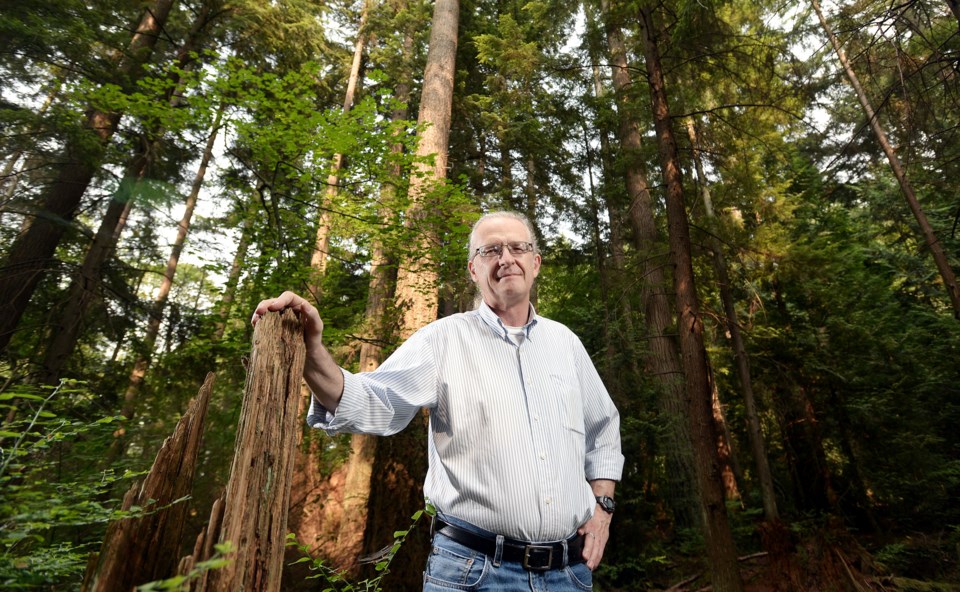Last month, Pope Francis issued a papal encyclical on climate change, saying “The Earth, our home, is beginning to look more and more like an immense pile of filth.”
An encyclical is an authoritative teaching document issued by the head of the Roman Catholic Church to his followers. But this particular letter targeted an audience wider than even the world’s one billion Catholics. It was addressed to “every person living on this planet.”
The encyclical is the result of the work of more than a year by scientists, theologians and scholars and it calls, in the words of Francis, for a “bold cultural revolution” to save humanity from self-destruction. Vancouver’s Gregor Robertson is among mayors from around the world who will meet with the pope in a few days to discuss the environment.
This pope has prioritized the alleviation of poverty and his encyclical on climate change is suffused with this concern, noting that it is the poor who are the first to suffer from environmental degradation. He paid homage to St. Francis of Assisi, the man whose name he took when he was selected pope, and the patron saint of those who study and work in the area of ecology and who was also a servant of the poor.
“We have forgotten that we ourselves are dust of the earth; our very bodies are made up of her elements, as we breathe her air and we receive life and refreshment from her waters,” Francis says in the encyclical, which is a surprisingly readable and poetic document.
It was certainly poetry to the ears of some local Catholics who have been devoted to environmental concerns for years.
Father Robert Allore is pastor at St. Mark’s Parish, on the UBC campus, and an adjunct professor at St. Mark’s College. He is also a scientist. He says the encyclical makes clear that the church believes that caring for the environment is not “just a nice option” but rather “is fundamental to our response to the world, which we believe is created by God and is very good.”
Is it an overstatement to suggest that the encyclical is revolutionary? Allore thinks not. In fact, he hopes it sparks a revolution.
“Something akin to revolution — what people of faith would often call conversion — some experience of conversion needs to happen around issues related to the environment,” he says. “The pope, in this encyclical, is saying we want to put our voice to this cry of people who say we need to be attentive to the environment if we are to survive as a people.”
Some people were surprised to see the head of the church come out so emphatically on this issue. Not Allore.
“If anybody thinks that somehow all we’re called to do is pray and God will do the rest, then I think that’s under-delivering on our evangelical mandate for the world,” he says.
He admits that these attitudes toward the environment are new, but credits changing realities. A century or more ago, humans were afraid of the violent predators in the dark wild, what Allore quotes Tennyson as calling “Nature, red in tooth and claw.”
Humans felt a need to control nature, he says, not coexist with it. But when, as in the last several decades, our ability to control nature expanded into an industrial scale that can overwhelm the Earth, a new theology is required, one that hearkens back, he says, to the earliest chapters of the Bible, in which humans are placed in a garden and given stewardship.
“That stewardship was often in lots of cultures, so it’s been there all along, but there were struggles against nature that probably became the dominant voice,” he says. “We’ve needed to change that.”
While there are voices that argue that the health of the economy supersedes that of the environment, it is not a zero sum, Allore says. While he observes that the poor are the first to suffer the effects of climate change, he also says we need to be careful to see that poverty can likewise harm the environment. While industrial interests are cutting Amazon rainforests, he says, some of the deforestation is coming from the area’s poor people, who are cutting wood for fuel or for income.
“So if that’s the case and we see what looks like a choice between the poor and the environment, we know that we have to then tend to the needs of the poor in a way that the environment is sustained,” he says. “So in the Amazon case, perhaps something like when we pay farmers here to not grow wheat, to leave fields fallow, maybe we need to pay the people of the Amazon to keep their forests, because that’s their resource. We can’t cut down our trees and use our resources and tell the poor not to.”
For Catholics who have been on the environmental frontlines for years, Allore says, the pope’s words are “a blessing,” an indication that this is not “just some sort of tree-hugger thing.”
“No, this is part of our mandate as believers,” he says. “This is part of what God has asked us to do.”
PacificSpiritPJ@gmail.com
@Pat604Johnson



